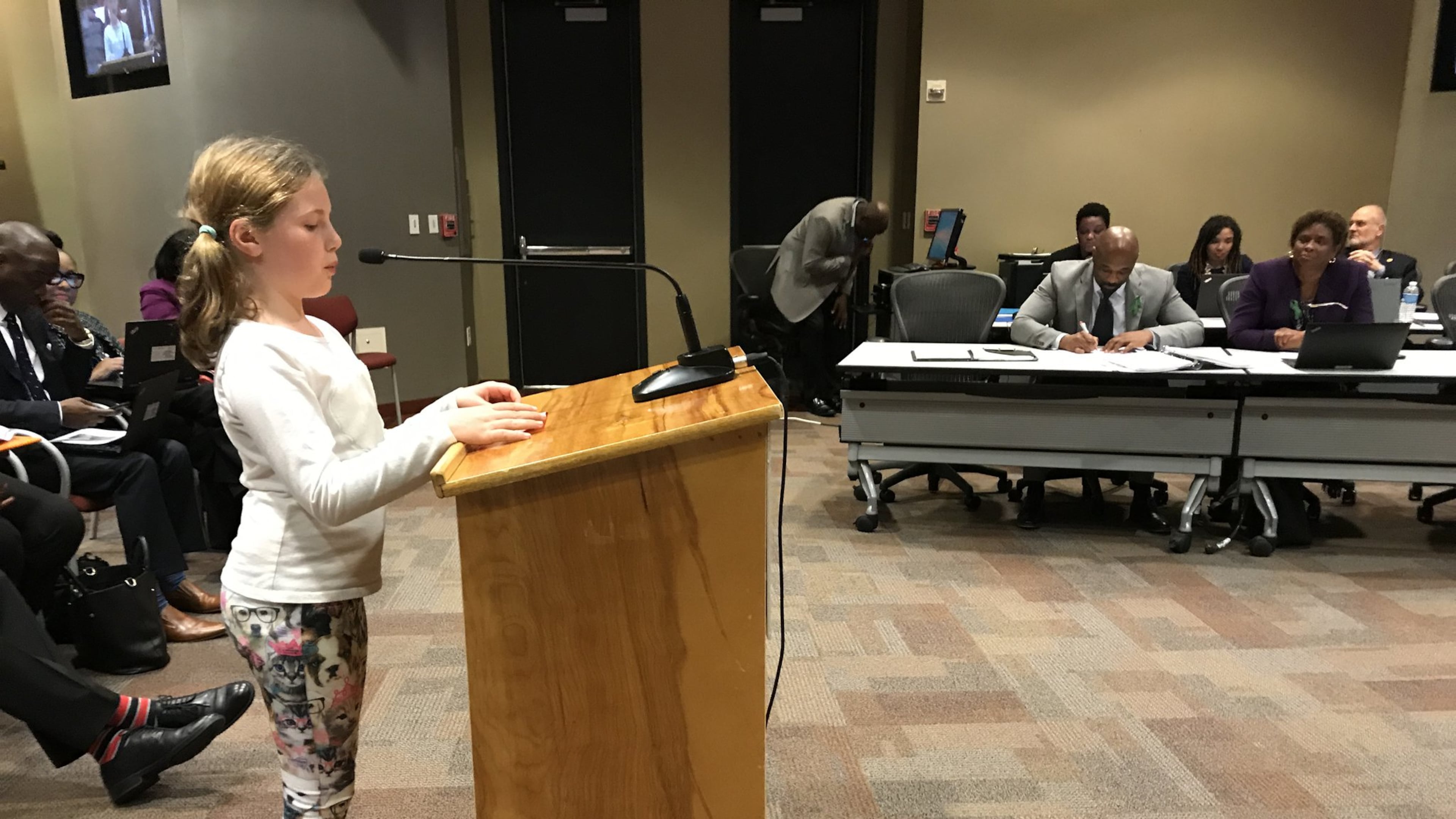Fifth-grade APS dress-code crusader: Clothes are not ‘distraction’

Two Atlanta fifth-grade girls who want to wear leggings to school are trying to change the student dress code, which bans “extremely tight” and “distracting” clothing.
The Atlanta Board of Education on Monday reviewed potential changes to its decade-old policy that would emphasize that clothing rules must be consistently and equitably enforced.
The board’s policy review committee will continue the discussion at a 4 p.m. Nov. 28 meeting. The full board could vote on the updated policy Dec. 4, though a final decision may be delayed until January if public input is extensive.
Falyn Handley, a 10-year-old student at Springdale Park Elementary School, gathered more than 1,000 signatures on an online petition seeking to remove the word “distracting” from the dress code policy.
“This is a label applied to girls’ clothing. I do not believe that clothing is a distraction. It is just the reaction that matters,” she told the board Monday. “I should not be punished for other people’s behavior. I am not a distraction.”
Some students and parents have complained that the clothing restrictions unfairly target girls and contend that dress-code violators have been removed from class, missing instruction time because of what they’re wearing.
The district’s proposed update maintains modesty requirements but stresses that students who attend schools where a uniform is not required should be able to wear what they want “without fear of unnecessary discipline.”
The suggested rewrite still states that “clothing, hairstyles, and jewelry must not be distracting.”
That language is antiquated and should be dropped, said Falyn’s mother, Honora Handley.
“The conversation is not about what you wore, not about what you wore to provoke, not about what you wore to entice, and not about what you wore to distract,” she said. “This is an opportunity for APS to take a leadership stance and build gender equity into this particular policy.”
Not everyone thinks the board should devote time to dress code changes. Valerie Williams, who describes herself as an advocate for students in the Washington cluster, said the district has ignored other requests — such as televising public comments during board meetings and rezoning attendance areas “equitably” — from residents in the district’s south and west sides.
“I believe that APS has more important work to do than … for this to be a priority,” she said.
Superintendent Meria Carstarphen said the board reviews all policies on a cycle, and sometimes those reviews take place at the same time the public raises an issue.
Questions about the dress code have come from across the district, said Eshé Collins, the board member who leads the policy committee.
Both Falyn and fellow Springdale Park fifth-grader Ruby Segerman sported leggings while addressing the school board. Ruby said they are affordable, comfortable and make up “90 percent of my closet.”
“I don’t believe that leggings are a distraction,” she said. “I would be very annoyed and embarrassed to be called a distraction. The dress code policy should remove that word.”
In other Education news:



